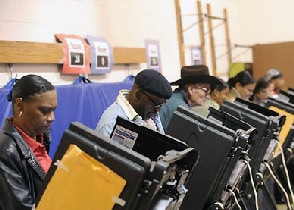Political Crisis In Honduras: Participation Of The Minister Of Foreign Affairs Of Trinidad and Tobago
PORT OF SPAIN, Trinidad – In the early hours of July 1st 2009, at a Special Session of the General Assembly of the Organization of American States (OAS), a resolution on the political crisis in Honduras was adopted by consensus.
Present at the meeting were the President of Honduras, José Manuel Zelaya Rosales and Ministers of Foreign Affairs from a number of OAS Member States including the Minister of Foreign Affairs of Trinidad and Tobago.
The Session had to be adjourned to await the arrival of President Zelaya who was on his way from New York where he addressed the General Assembly of the United Nations (UN) on his removal from office and developments within Honduras.
Earlier on June 30th, 2009, the UN had also adopted a resolution condemnatory of the coup d’ etat and which demanded the immediate, safe and unconditional return of the President. Trinidad and Tobago was one of the co-sponsors of the Resolution.
Prior to the formal submission of the draft resolution to the General Assembly of the OAS, a small group of Ministers of Foreign Affairs, including Minister Gopee-Scoon of Trinidad and Tobago, met in caucus to discuss the situation and formulate recommendations on the way forward. CARICOM was very active prior to and during
the negotiations of the draft resolution. Belize, Dominica, Grenada and Trinidad and Tobago were the CARICOM countries represented by their Ministers of Foreign Affairs.
Arising out of these deliberations the General Assembly resolves:
• To condemn vehemently the coup d’état staged against the constitutionally established Government of Honduras, and the arbitrary detention and expulsion from the country of the constitutional President José Manuel Zelaya
Rosales, which has produced an unconstitutional alteration of the democratic order;
• To reaffirm that President José Manuel Zelaya Rosales is the constitutional President of Honduras and to demand the immediate safe, and unconditional return of the President to his constitutional functions;
• To declare that no government arising from this unconstitutional interruption will be recognized, and to reaffirm that the representatives designated by the constitutional and legitimate government of President José Manuel Zelaya
Rosales are the representatives of the Honduran State to the Organization of American States;
• To instruct the Secretary General to undertake, together with representatives of various countries, diplomatic initiatives aimed at restoring democracy and the rule of law and the reinstatement of President José Manuel Zelaya
Rosales, pursuant to Article 20 of the Inter-American Democratic Charter and report to the Special General Assembly on the results of the initiatives.
Should these prove unsuccessful within 72 hours, the Special General Assembly shall forthwith invoke article 21 of the Inter-American Democratic
Charter to suspend Honduras’ membership.
Another meeting of the OAS General Assembly has been scheduled for July 4th 2009.
The similar approach adopted by the UN and the OAS bears testimony to the concern for the maintenance of the rule of law and respect for the constitutional democratic order as reflected in the resolutions adopted by consensus and the
statements emanating from the Member States of these organizations.


